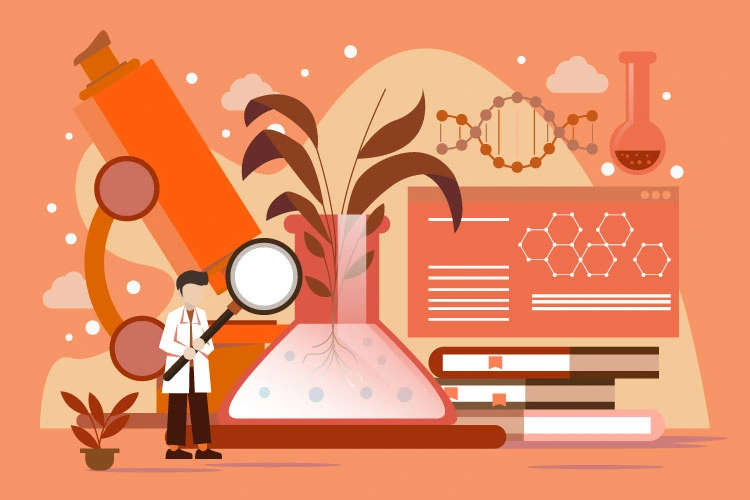In the modern world of life sciences, AI is changing how biological data is discussed and construed. In genetics, in pharmaceuticals, in fact, across many fields of study, it is the algorithmic power of AI that is helping to peer through the mists of data that it is science’s current lot to swim through. Now, it is time to discuss the impact of AI on biological data analysis results and find out why this issue is so important.
AI and Data Analysis: A Perfect Match
AI’s contribution to handling voluminous and interrelated biological data is genuinely disruptive. Conventional data analysis approaches are adequate, but they can hardly cope with the volume and variety of contemporary biological data. AI, on the other hand, provides a better platform with its sophisticated analysis.
Another attractive ability of AI algorithms is that they can handle a large amount of data within a short time. This capability is instrumental in biology, where biologists often manipulate large datasets from experiments such as genomics and proteomics. AI brought out patterns that were hard for a human being to see due to their complexity. For instance, AI can scan through many thousands of variations in a population and highlight the most likely being connected to certain diseases.
Furthermore, it opens up the use of varied forms of data analyses, including predictive and prescriptive analyses, which empower the researcher not only to look back at the results of previous studies but also to look forward to forecasting the future outlook. This results in constructive and effective modeling as well as improved hypothesis-making.
AI Applications in Biological Context Widespread in Biomedical Studies
She established that artificial intelligence has a real effect on multiple domains of biological research. In genomics, for instance, artificial intelligence figures out the sequence of a string of genes and relates it with mutations causing diseases. This can considerably facilitate the identification of candidate genes and the subsequent design of related treatments.
In drug discovery, the AI contributes to deciding which compounds show potential and can then predict how effective they will be before any actual testing occurs. AI systems, based on the outcome of prior studies, can indicate which molecules may have favorable interactions with biological targets. This not only saves time but also cuts down the expenses that are usually incurred in the development of the drugs.
Another promising area of its use is in the individualized pharma product approaches. In the case of treatment, AI assists in researching the patient information to determine the best treatment suitable for each genetic sequencing. This approach shifts away from the generic changes in treatments and towards protocols that will work for specific situations.
Neofascist Risks and Implications: Challenges and Future Directions
However, as helpful as AI is, several problems come with it. However, one of the main issues is the quality of the collected data. AI systems are built upon data, particularly quality data that has been curated. It is hazardous in such delicate areas as medicine – due to the imperfection and subjectivity of data, wrong conclusions can be drawn.
Another challenge that has been named is the requirement of interprofessional. Machine learning in biology may need skills in both scientific computation and biology discipline. Therefore, data scientists must collaborate with the researchers to understand or interpret the models correctly.
Looking to the future, its combination with other trends, such as robotics and advanced imagining, is only the tip of the iceberg. These technologies are just reaching maturity, so they are likely to boost biological data analysis even further as the technologies mature.
Conclusion
AI is undoubtedly revolutionizing itself in analyzing biological data more efficiently and accurately, yielding more information. Utilizing complex methods of extractions of analytics, as well as data science, extended opportunities for discoveries, enhancing the speed of production of drugs and individual selection of creations that have been impossible before.
While working on further developing AI technologies and overcoming the revealed issues, the future of biological research is rather promising. The problem is that adopting AI technology cannot be seen as an opportunity but as an imperative to remain competitive within the scientific community.


